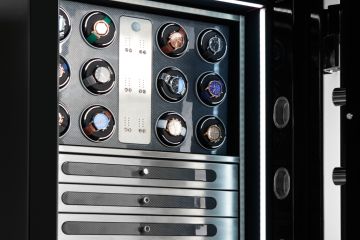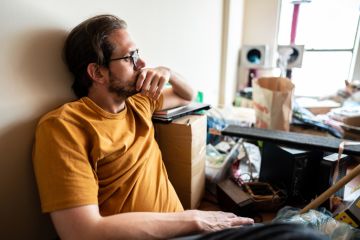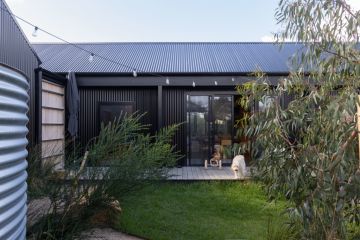Woman in the wilderness: How Miriam and her husband live full-time in the wild

When Miriam Lancewood recounts the craziest thing she’s ever done to survive, she recalls a small goat, a long afternoon and a game of cat and mouse.
“I had been failing for a few days to catch anything when I was hunting, so I remember saying to myself, ‘Today I will get a goat and I will not give up’.
“I set out with six arrows and walked down to a river bend where I spotted a goat. I shot all of my six arrows and it still didn’t die – instead, it was wounded and ran up the river.
“Every arrow costs about $20 each, so this was an expensive goat. I ran after this goat for more than two hours. When I got tired and started walking, the goat started walking. When I started running again, the goat started running. It went on and on, crossing rivers and all.”
As the goat tired and hid behind a tree, Dutch-born Lancewood was forced to kill it with a knife.
“That was the most extreme thing I had ever done. As a kid who was a vegetarian, I would never have believed you if you told me that’s something I would end up doing.”
Lancewood doesn’t kill for fun. In fact, as someone who only very recently begun to eat meat, it’s one of the hardest things she does day-to-day to stay alive.
She and her husband Peter live a primitive and nomadic life in nature, with nothing but a tent, some cooking utensils, two backpacks and some camping gear aiding their survival.
The couple survive by hunting wild animals and finding edible plants, living in remote bushland with nothing but the sound of their own thoughts, and some neighbourly wild animals keeping them company.
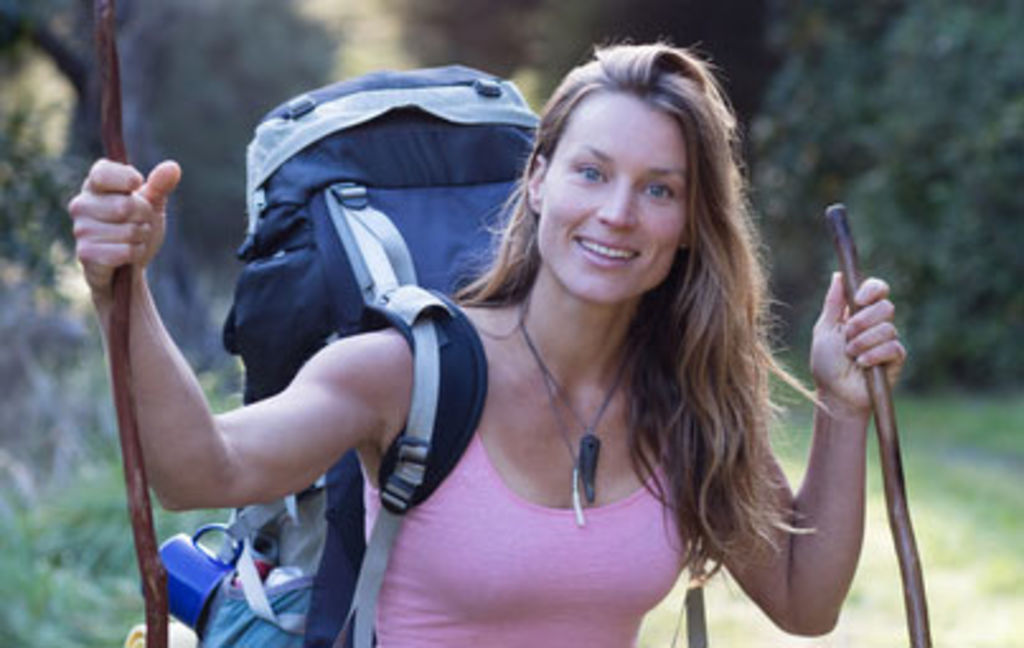
For Miriam, an affinity with nature and the wilderness was born at the age of seven, when she was taught how to light a fire, how to pitch a tent and how to use a tripod to cook food over flames in Scouts.
When she met Peter in 2006 in India, the duo came up with the idea of living, full-time, in the wild.
- Related: The family who sold their home for life on the road
- Related: Living in a 13-person share house
- Related: The family living in a rural distillery
“We moved back to New Zealand because that is where Peter is from and every weekend, we went to camp in the mountains. Every Sunday, I never wanted to come back. After a year, we thought, why don’t we try to live in the mountains? Why go out and have a job and buy a house and a car if we don’t need them? It was much better to give that all back and sell it and move into the mountains.”
That was in 2010. Spending just $5000 each a year since then, they immerse themselves in the wild for months at a time, re-emerging into the outside world for a short time to re-stock supplies. So how do they choose where to live?
“We need water, we need wood, we need shelter — which means we need some forest — and we need a flat spot. It is surprisingly difficult, finding a two-by-two-metre flat spot,” she says.
“We don’t have machine or phone of any kind. We just find these places on intuition. We have found that the tallest and biggest trees often have a flat spot at the bottom.”
If Peter is the brains behind their many expeditions, often finding a spot to camp and cooking, then Miriam is the brawn, spending hours at a time hunting for food. After seven years in the depths of New Zealand nature, in 2017, the couple tried their luck in Europe. They have, most recently, made their way to Australia after Miriam was asked to speak at the Byron Bay Writer’s Festival. (Instead of accepting return flights from Europe, she simply asked for two one-way tickets halfway across the world.)
After nearly nine years living in the world, Miriam understands boredom in its most intricate detail.
“We started out very excited. When we finally made it in, we thought, this is fantastic, we are so lucky. It was like the first day of a holiday.
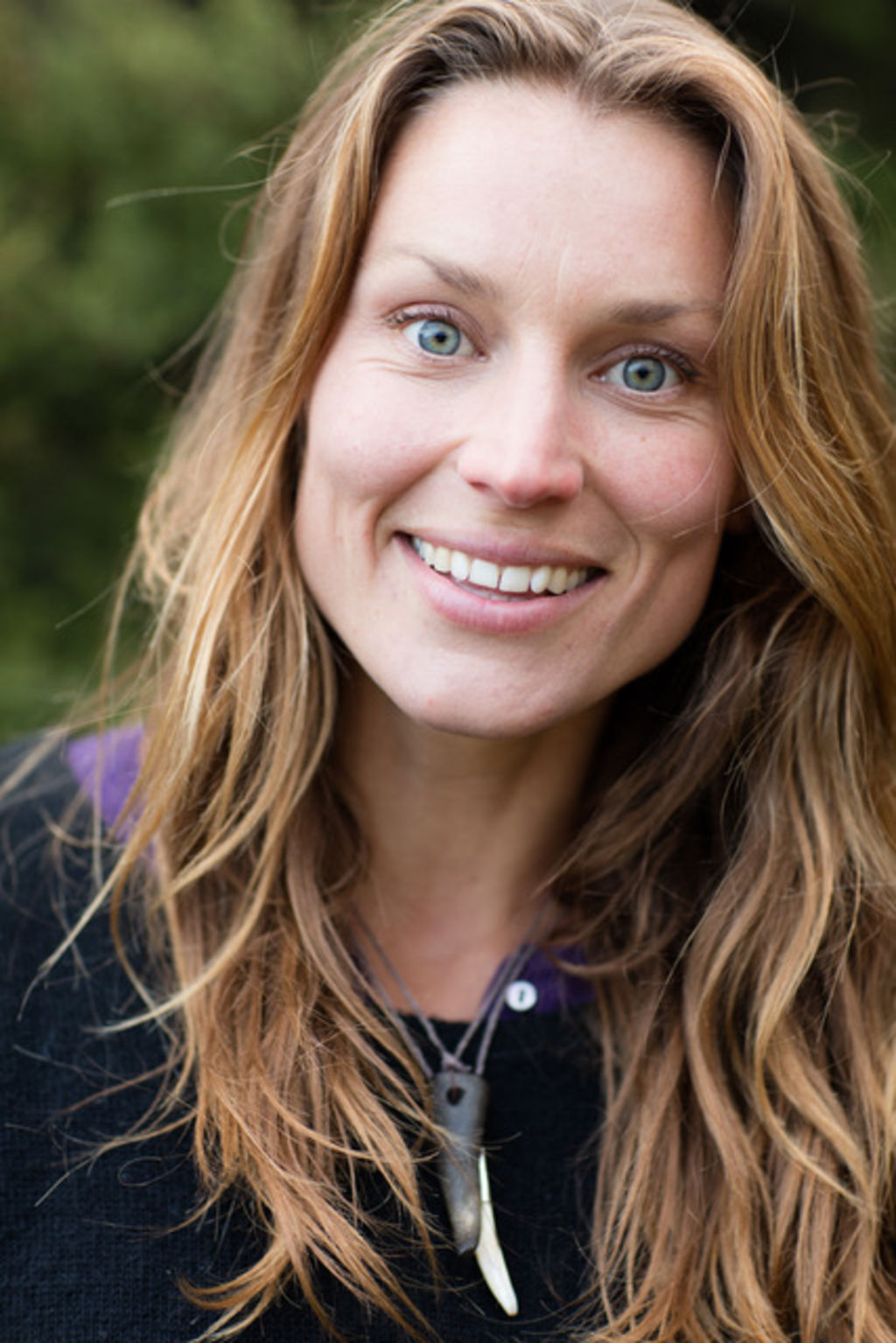
“On the second day, there was nothing to do. I thought, ‘Oh my god, this is going to be it’. It hits you like a baseball bat.
“It was almost like a kind panic, I became restless and thought of tasks to complete. Peter was the one to tell me to calm down. He said this is the art of doing nothing and you have to learn how to do this now.
“Nature is very slow, and my mind was moving very fast. It takes two weeks for the mind to slow down and in that time, you will feel very bored, but it’s necessary in order to find that peaceful state of mind. That was very difficult, but now I know I can get through it.”
Every time they surface back into the world we inhabit — via hitchhiking, usually — they first inquire about the state of the world.
“The world seems to change surprisingly little. We always ask the minute we come out, to the first person we see, what is happening in the world? And they will so often say, ‘I don’t really know actually’.”
As for how living this way has changed her, Miriam says she is more thoughtful, more mellow, far more more observant.
“I have become more aware. That’s the effect of hunting, I think. You have to be very, very quiet and you quickly realise your own thoughts are very loud, so you have to stop thinking, too. It’s like forced meditation.
“I think less now, I am more aware in social situations and I listen far more.”
She misses people and conversations but as for the big, fast-moving, globalised world we live in, there’s little else apart from their health drawing the couple back.
“I do remember in that first winter, I would see little faces in the mountain. I very much miss talking to other people,” she says.
“We live without time. We don’t have a clock. We have no days of the week. We never have the dreadful Sunday night feeling. We don’t even have a mirror and it’s a great relief — I know Peter’s face better than my own face. There’s no thinking about money, because there’s nothing to spend it on. It’s a very liberating state of being.
“We sleep when we are tired, we eat when we are hungry. Nothing matters.”
Miriam Lancewood will be speaking at The School of Life’s event, Embracing The Wild. More details and tickets available at theschooloflife.com.
We recommend
We thought you might like
States
Capital Cities
Capital Cities - Rentals
Popular Areas
Allhomes
More
